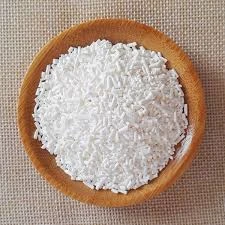
permitted emulsifier
The Role of Permitted Emulsifiers in Food Products
Emulsifiers are vital ingredients in food production, playing a crucial role in stabilizing mixtures that typically do not blend well, such as oil and water. As society increasingly demands consistency and quality in food products, the use of permitted emulsifiers has grown significantly. Understanding these emulsifiers and their functions can offer insights into modern food technology and its implications for health and safety.
Permitted emulsifiers are those that have been approved by regulatory bodies, such as the Food and Drug Administration (FDA) or the European Food Safety Authority (EFSA), for use in food products. These substances can be derived from natural sources, such as lecithin extracted from eggs or soybeans, or produced synthetically. Their primary function is to lower the surface tension between immiscible liquids, creating a stable emulsion, which is essential for products like mayonnaise, salad dressings, and sauces.
One of the most common permitted emulsifiers is mono- and diglycerides, derived from glycerol and fatty acids. These emulsifiers are widely used in baked goods, snacks, and spreads to improve texture and extend shelf life. Another widely utilized emulsifier is polysorbate 80, often found in ice creams and whipped toppings, providing a creamy texture while preventing ice crystal formation.
permitted emulsifier

The impact of permitted emulsifiers goes beyond mere stabilization; they can affect the sensory properties of food. Emulsifiers can enhance mouthfeel, improve spreadability, and even influence the overall flavor profile of a product. This means that manufacturers can create more appealing and consistent food experiences for consumers.
However, despite their benefits, the consumption of emulsifiers has raised health concerns. Some studies suggest that certain emulsifiers may disrupt gut microbiota or contribute to inflammatory responses. As a result, regulatory agencies continuously assess the safety of these additives, ensuring that only those considered safe and beneficial are allowed for use in food production.
Moreover, the growing trend towards clean label products has prompted many consumers to be more cautious about the ingredients in their food. As a response, some manufacturers are opting for natural emulsifiers or reducing their usage altogether. This shift reflects a broader movement towards transparency in food production and a desire for healthier options.
In conclusion, permitted emulsifiers play a significant role in modern food technology. While they contribute to the texture, stability, and overall quality of food products, ongoing research and consumer preferences will continue to shape their use in the industry. Understanding the balance between functionality and health implications will be crucial as we move towards a more health-conscious food landscape.
-
nitrile-rubber-honoring-strict-production-standardsNewsAug.22,2025
-
aspartame-ingredients-honoring-food-safety-valuesNewsAug.22,2025
-
fertilizer-for-balanced-plant-nutritionNewsAug.22,2025
-
cyanide-gold-processing-with-high-purity-additivesNewsAug.22,2025
-
formic-acid-in-textile-dyeing-applicationsNewsAug.22,2025
-
aluminum-hydroxide-gel-in-skincare-productsNewsAug.22,2025
-
Regulatory Compliance for Global Mining Chemicals UseNewsAug.12,2025
Hebei Tenger Chemical Technology Co., Ltd. focuses on the chemical industry and is committed to the export service of chemical raw materials.
-

view more DiethanolisopropanolamineIn the ever-growing field of chemical solutions, diethanolisopropanolamine (DEIPA) stands out as a versatile and important compound. Due to its unique chemical structure and properties, DEIPA is of interest to various industries including construction, personal care, and agriculture. -

view more TriisopropanolamineTriisopropanolamine (TIPA) alkanol amine substance, is a kind of alcohol amine compound with amino and alcohol hydroxyl, and because of its molecules contains both amino and hydroxyl. -

view more Tetramethyl Thiuram DisulfideTetramethyl thiuram disulfide, also known as TMTD, is a white to light-yellow powder with a distinct sulfur-like odor. It is soluble in organic solvents such as benzene, acetone, and ethyl acetate, making it highly versatile for use in different formulations. TMTD is known for its excellent vulcanization acceleration properties, which makes it a key ingredient in the production of rubber products. Additionally, it acts as an effective fungicide and bactericide, making it valuable in agricultural applications. Its high purity and stability ensure consistent performance, making it a preferred choice for manufacturers across various industries.





